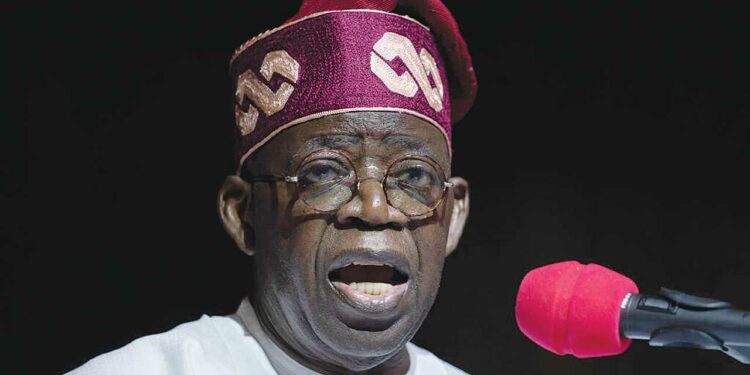691
By Tracy Moses
President Bola Tinubu has reaffirmed his administration’s commitment to constitutional reforms aimed at strengthening national institutions, advancing justice, and safeguarding the fundamental rights of Nigerians.
Speaking through the Secretary to the Government of the Federation (SGF), Senator George Akume, at the National Public Hearing on the Review of the 1999 Constitution (as amended), held on Monday in Abuja, the President described the exercise as a “historic opportunity” to consolidate good governance, inclusivity, and sustainable national development.
Tinubu applauded the House of Representatives Constitution Review Committee, chaired by Deputy Speaker Benjamin Okezie Kalu, for providing an inclusive forum that accommodates citizens, civil society, political parties, professional bodies, and traditional rulers in shaping the country’s supreme law.
“The Constitution is the foundation of our democracy. It is not a static document, but a living one that must continually respond to the realities, aspirations, and challenges of our people,” he said.
He stressed that the review process should deepen federalism, entrench accountability and equity, and deliver institutions capable of protecting citizens’ freedoms. According to him, the reforms are consistent with his Renewed Hope Agenda, which prioritises good governance, social justice, and economic transformation.
The President urged Nigerians to fully engage in the process, noting that their contributions would help shape a Constitution that serves future generations. “I encourage every participant to approach this process with patriotism and responsibility. The quality of ideas generated here will determine the strength of the institutions we leave behind,” he said.
Tinubu further assured that his administration would carefully consider the outcomes of the review, expressing confidence that it would yield reforms to strengthen national unity and prosperity.
Declaring the hearing open, Speaker of the House of Representatives, Rt. Hon. Tajudeen Abbas, described the exercise as “a defining moment in Nigeria’s democratic evolution,” emphasising that the Constitution must reflect the will of the people rather than the preferences of politicians alone.
He pledged a swift legislative process, promising that once the review is concluded, the proposed amendments would be voted on without delay and promptly transmitted to State Assemblies. “Reform delayed is reform denied. Nigerians deserve certainty and closure. We will expedite the process and give the States adequate time to deliberate and ratify the people’s will,” Abbas said.
The Speaker outlined key areas under consideration, such as creating reserved seats for women in federal and state legislatures to boost representation beyond the current five percent, ensuring guaranteed political participation for persons with disabilities, introducing gender quotas in ministerial appointments, and granting traditional rulers formal advisory roles in peacebuilding and community security.
He argued that these changes would make Nigeria’s democracy more inclusive, fair, and responsive to citizens’ needs.
Deputy Speaker Benjamin Kalu, who chairs the Constitution Review Committee, disclosed that the panel had compiled 87 amendment bills following extensive consultations, nationwide hearings, and submissions of memoranda. He highlighted some of the most consequential proposals, including electoral reforms such as provisions for independent candidacy, the establishment of an Electoral Offences Commission, and fixed timelines for resolving pre-election disputes.
Other critical recommendations include devolving policing powers by moving it from the Exclusive to the Concurrent Legislative List to allow for state and community policing, as well as granting local governments full financial and administrative autonomy to strengthen grassroots governance.
“These proposals are not the impositions of lawmakers; they reflect the genuine demands of Nigerians,” Kalu said. “Constitutional reform is not a sprint but a marathon. Sustained citizen engagement is vital to see it through.”
Both Abbas and Kalu assured that the process would remain open, transparent, and insulated from political interference. They promised that the harmonised version of the proposed amendments would be made public before plenary voting. Citizens were also urged to actively engage lawmakers and State Assemblies to prevent the reforms from being weakened or discarded.
Speaker Abbas further called on civil society groups, labour unions, women, youth, traditional leaders, and the media to present practical, solution-oriented contributions. “By amending our Constitution, we are writing a new chapter in Nigeria’s history. Let us be remembered for choosing courage over caution, and unity over division,” he said.
The hearing represents the final stage of consultations before the National Assembly begins voting on the 87 amendment bills. If adopted and ratified by at least 24 State Houses of Assembly, the reforms could usher in the most sweeping constitutional overhaul since 1999, reshaping Nigeria’s governance, security, inclusivity, and democratic accountability for decades to come.



